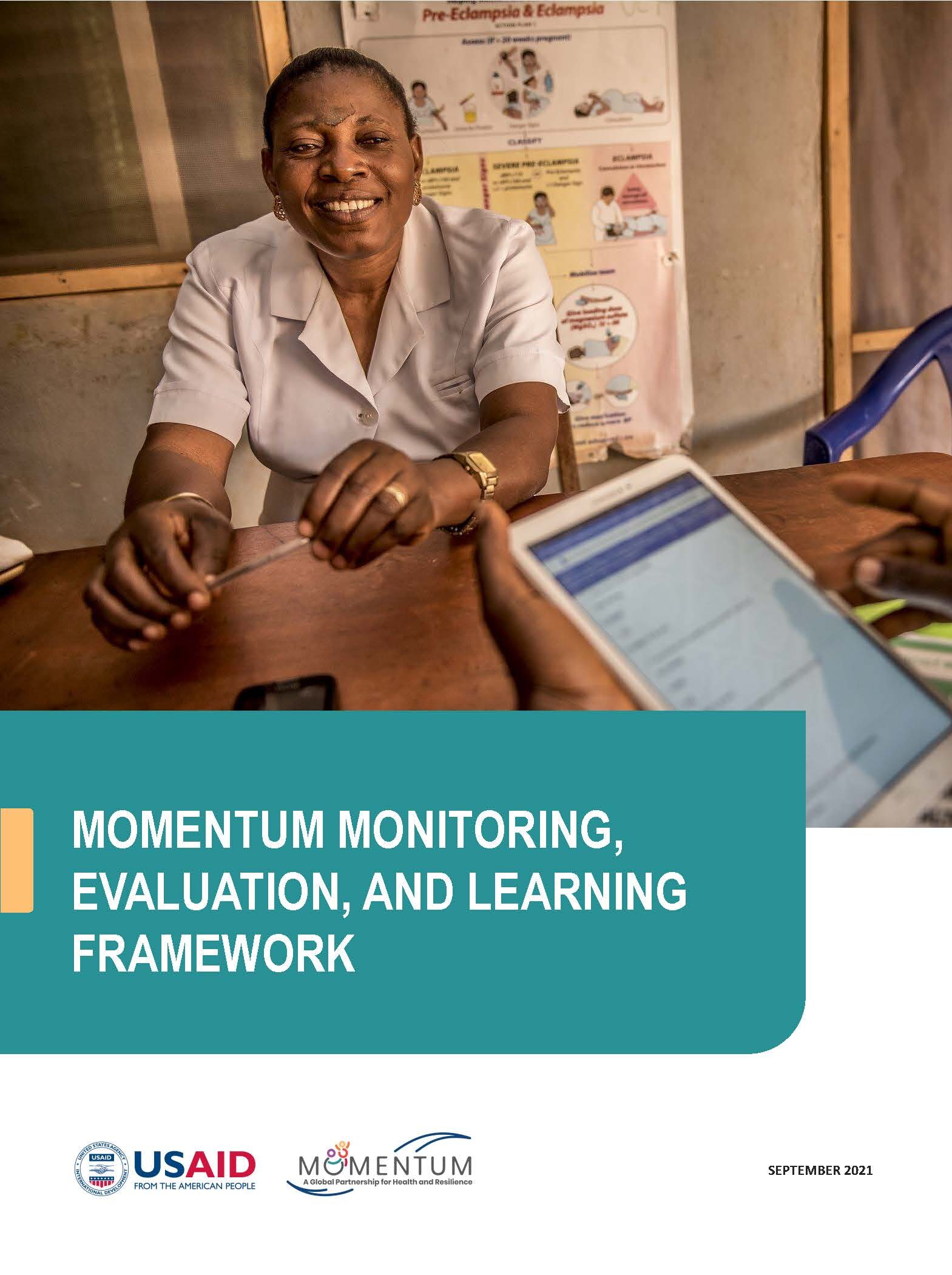Program & Technical Resources
MOMENTUM Monitoring, Evaluation, and Learning Framework
MOMENTUM recognizes that countries have different epidemiologic and demographic profiles and unique, context-specific challenges requiring tailored support. The six MOMENTUM awards, and possibly at least one additional bilateral award, tackle the different challenges that have prevented women and children from having the same opportunities to survive and thrive, no matter where they live. All awards under MOMENTUM are designed to provide countries with the tailored support they need to progress along the continuum of development towards self-reliance.
The MOMENTUM Monitoring, Evaluation, and Learning (MEL) framework lays out the conceptual roadmap to realize the MOMENTUM vision and the approach to measuring progress towards the achievement of that vision. It is based on key concepts, relationships, and pathways through which MOMENTUM will achieve the four results shared by all MOMENTUM awards:
- Scaled-up and sustained access to and use of evidence-based, high-quality information, services and care, and interventions for maternal, newborn, and child health and nutrition, voluntary family planning, and reproductive health (MNCHN/FP/RH).
- Improved, institutionalized, measured, and documented local capacity to deliver evidence-based, high-quality MNCHN/FP/RH services.
- Increased adaptive learning and use of evidence among host country technical leadership.
- Increased innovative collaboration between MNCHN/FP/RH and other sectors.
The MEL framework is organized into five components: (1) Theory of Change, (2) Learning Agenda, (3) Measurement, (4) Analysis and Synthesis, and (5) Dissemination and Data Use. This document describes each component separately and how they work together across all the MOMENTUM awards to create a harmonized approach to enable the MOMENTUM suite of awards to:
- Collect and compile qualitative and quantitative data for harmonization and reporting across MOMENTUM awards.
- Generate evidence and insights associated with the learning agenda and adaptive learning for MOMENTUM.
- Synthesize MOMENTUM learning and experiences for broader technical and non-technical audiences.


